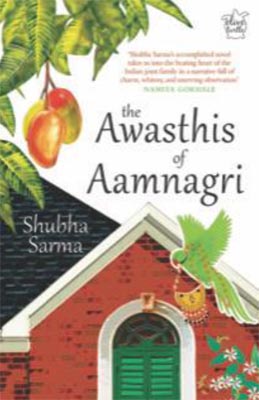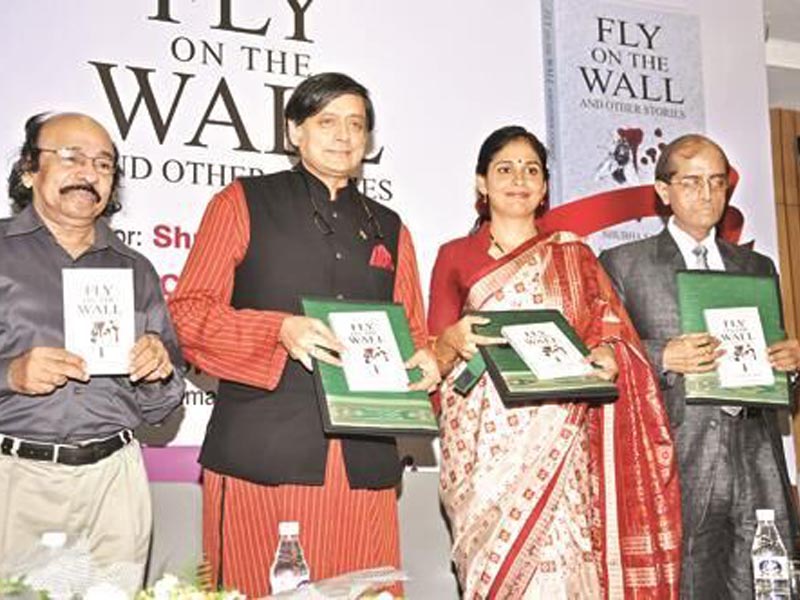Born and brought up in Lucknow, Shubha Sarma is an alumnus of Lady Shri Ram College and Jawaharlal Nehru University and a member of the Indian Administrative Service. A Yoga practitioner, she enjoys travelling, swimming and tending to her bonsai collection. She currently lives in Bhubaneswar with her husband, two sons and four dogs. She is an IAS officer and a very successful author with one book being a bestseller and the second one recently published.
Her debut book, Fly on the Wall & Other Stories was launched in 2013 and was translated into Hindi and Italian. It received rave reviews from readers and critics alike. Her body of work displays strong characters and reflects the changing times that confront us. Her debut book “Fly on the Wall & Other Stories” was an anthology of thirteen short stories that was released in 2013 by Dr. Shashi Tharoor, then Minister of State for HRD. It was originally published in English though subsequently it was translated into Hindi, Italian and some other languages.
In today’s fast paced routines, a strong thread of nostalgia runs through our lives, especially in those above the age of thirty-five. It emerges in the most unlikely places and at the most unlikely times: whatsapp forwards that reminisce about the good old days, twitter trends and handles that specifically speak about growing up in the 1970s, 1980s or even 1990s, an old ad jingle or a brand, anything that triggers fond memories. She captured that period in our lives when summer vacations were long, languorous and full of a game of cards, when the greatest worry was not losing all your contacts stored on your smart phone. ”At the same time, I did not want to turn the book into an Ekta Kapoor serial or ‘Buniyaad’ with evil mothers-in-laws and conniving sisters-in-laws.” is how she wants to describe it. Though a reader might see some common elements, what sets it apart is the subtle humour and satire. The attached chapter would make this difference evident.

She has deliberately chosen English to reach out to a wider audience, especially since it would have universal appeal. However, she very much intends to translate it into other languages subsequently.
The second book by Shubha Sarma is also going to be one definite hit as she is truly an inspiration for her readers and future writers who see her as an inspiration.
The Awasthis of Aamnagri are in many ways the quintessential middle-class family from the Hindi heartland. The story begins with Pandit Dinanath Awasthi scouting for a bungalow for his family along with his assistant, Munshi Shyamlal. They stumble upon Bangala Number Unnees (19) which appears perfectly suited to their requirement and budget. Except for one problem⎯ it is in a ramshackle condition. With great adroitness, Munshi convinces Panditji to invest in the property and the Awasthis move into their new house.
Slowly, the reader is introduced to the different characters in the book: Panditji’s four sons, their wives and children. The pivotal character is Panditji’s wife, Shakuntala, who goes by the moniker Mataji. She is the archetypical mother-in-law, ruling over the household with an iron hand and imposing her will upon family members and household help alike.
However, on a number of occasions, she finds herself holding the short end of the stick, as things do not go the way she plans.
When there are women involved, sarees and pieces of jewellery can hardly be far behind. Through these much-loved heirlooms, relationships and family hierarchies are on full display in the Awasthi household.
However, in the end, life is about relationships and whether we value them enough. Will Panditji’s brood come back together some day? Or will the Awasthi family lie scatter under the pressures of modern day living?
With a promising plot like that its sure to be as thrilling as the readers expect it to be. With reviews from some of the greatest critics in India, Shubha Sarma is set to be an exceptional and make a significant affect on Indian writing. Stay tuned for more on her.

Story by Megha Bali


